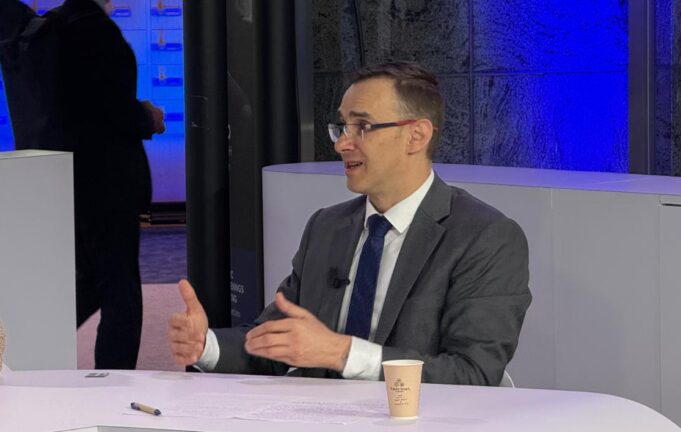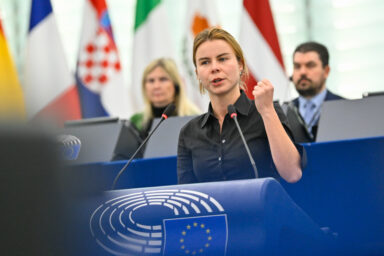Defence spending is a necessary, but woefully far from sufficient condition of European security. Inefficient procurement, personnel shortages, and the battle for the minds and hearts of European citizens need to be addressed as well. The prerequisite for doing so is common threat assessment, Martin Fedor, Slovakia’s foremost defence expert, told the EU Perspectives podcast on 18 March. The Brussels debate featured Members of the European Parliament Petras Auštrevičius (Renew/LI), Rasa Juknevičienė (EPP/LI), and Markéta Gregorová (Greens-EFA/CZE).
More than 15 years ago, Martin Fedor was Slovakia’s Minister of Defence. Much has changed since then, he says; his country has become a victim of the Russian hybrid war, for one thing. On the EU Perspectives podcast Mr Fedor shared his insights into the current European defence developments.
“The attitude toward defence has changed dramatically, as have its challenges. Ten years ago, we were talking about about the so-called out-of-area initiatives and activities of our militaries outside the NATO or EU countries. We were focusing on light forces, on being able to deploy them somewhere, and to retain them for a certain number of months,” Mr Fedor recalled what today appears a very distant past.
“The situation has completely changed, and we need to focus on the backbone idea of NATO, which is being able to defend the very land of the member state countries. Of course, totally different capabilities are needed for this kind of challenges. So I’m very happy to see so many new initiatives from the European Union and from the European Commission right now,” he started out on an apparently upbeat note.
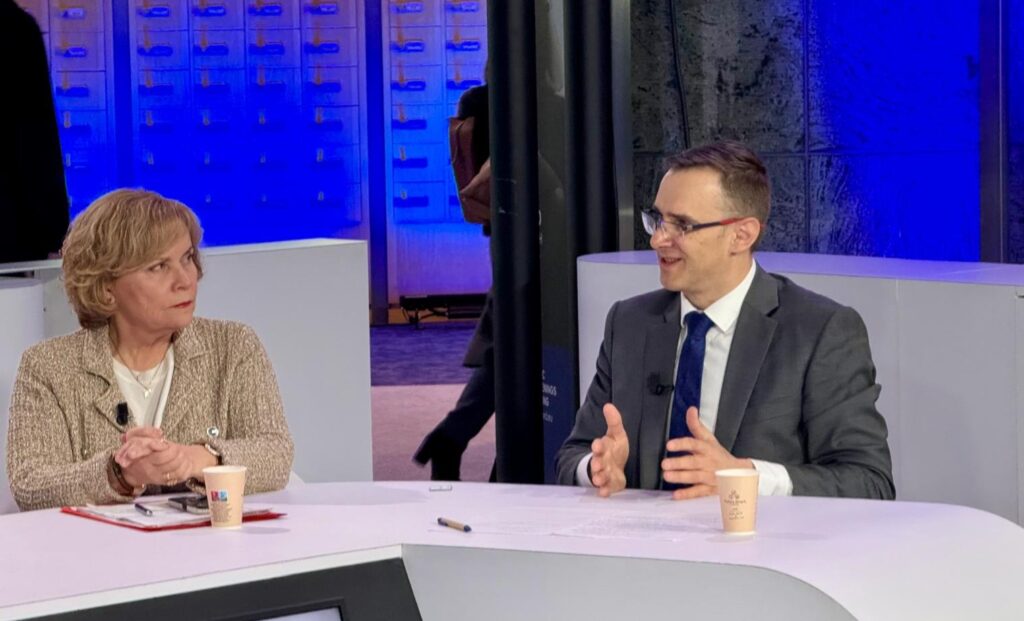
“It might seem to someone that the Europeans are panicking, but I think it’s good to see the proper initiatives coming not only from the individual member countries, but also from the Commission, which should coordinate member states much better than it used to,” Mr Fedor said. “I think this is a wake up call for the European Union. We repeated this many times; but now I think we also need to deliver the results,” he got to the heart of the matter. “Not only initiatives, not only activities, but also the results. So hopefully some of the member states – especially Germany – will help increase the defence capabilities much more than (in the past)”.
Mr Fedor’s fellow debater, the Lithuanian MEP Rasa Juknevičienė spoke in support of his views. “The European Union was built as a peace project, and never a military bloc. It is not in the treaties, just a few sentences about a possible defence union,” she said. When blaming Europe, we have to blame first of all the EU member states, the Lithuanian MEP – and Mr Fedor’s fellow ex-Defence Minister – stressed.
You might be interested
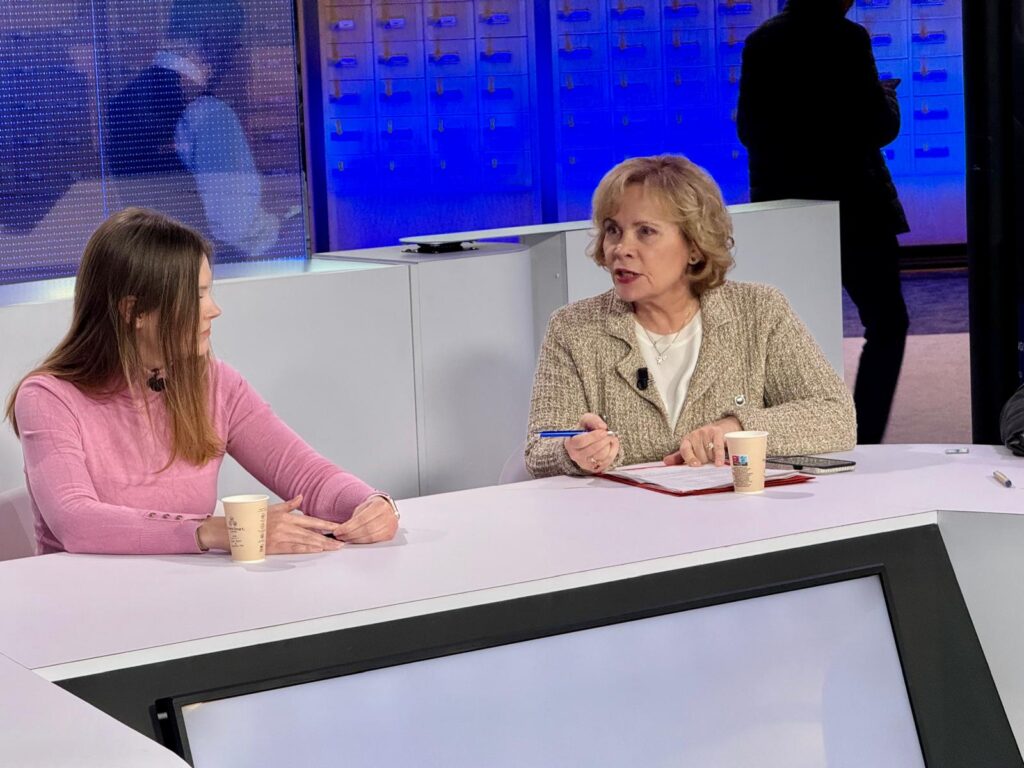
The Slovak expert agreed. “I would consider European Union as a great project, as it was rightly said, a peace project that has developed peace in the European continent through cooperation, especially economic cooperation,” he said. “But back to the roots – there was always the idea to develop a defence union inside the European Union. Now, we need to develop defence capabilities just to be able to face the well-known threats. And I must insist that threat assessment is number one. Agreement on threat assessment is the number one task for the whole European Union,” Mr Fedor said gravely.
The former Chair of the Slovak Parliament’s Defence Committee then elaborated on the costs of the massive continent-wide military upgrade. “This assessment goes to something like 250 billion annually,” he said. That alone will not be easy to achieve, the debaters agreed.

Worse still, the money should be spent wisely. “The 250 billion of euros each year may not be something that we would consider effectively spent money because each country is trying to spend it on its own, which not always an efficient way to deal with your defence expenditures,” Mr Fedor pointed out.
“I wouldn’t say we just need to spend more. We have to spend smarter, invest in fields which guarantee us strategic advantage,” another Lithiuanian MEP, Mr Auštrevičius concurred. “We definitely need cooperation on both regional and EU levels in this regard.” Such an approach could pave the way to the reduction of the chronic inefficiencies plaguing European defence.
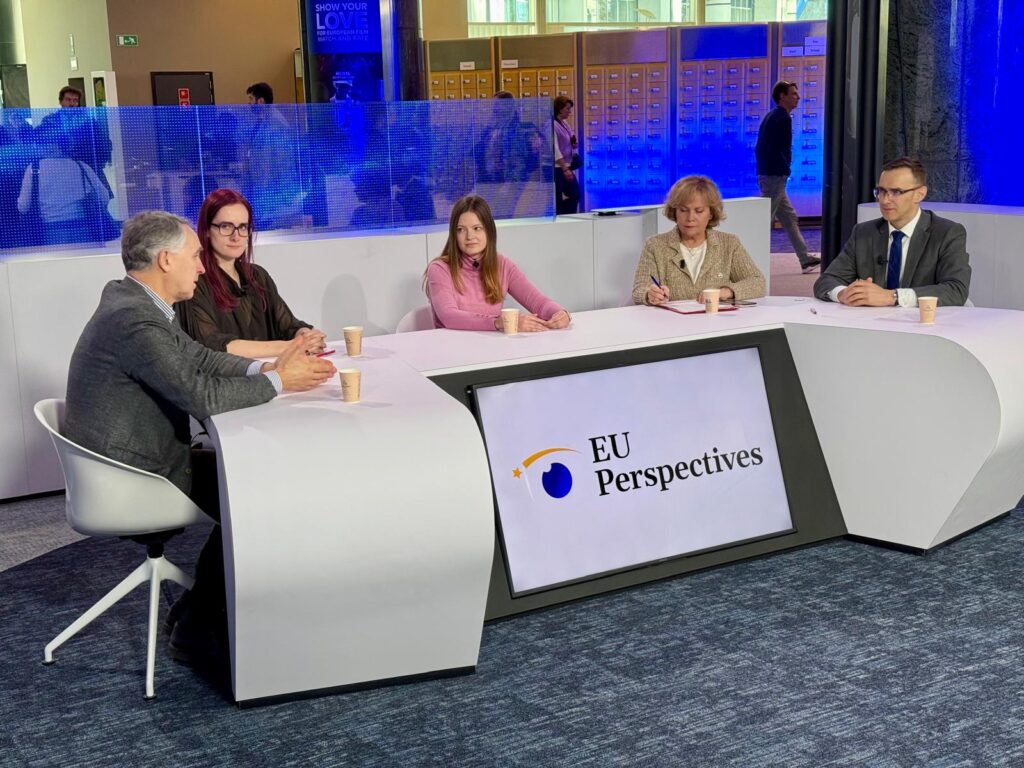
“Mr Auštrevičius correctly said that the sum of 250 billion of euros would not go directly into defence,” Mr Fedor remarked. “We see a lot of inefficiencies, lot of overlapping, a lot of misdirected procurement.” He went on to mention a 2018 European Commission report that identified potential savings worth €30bn billion in streamlining the military procurement process. “That would be a considerable amount of money to put directly into defence,” he said.
So what should the priorities be of clever military spending? “It’s not only about the budget itself. We actually don’t have enough military personnel right now at the stage. So we need to use the increased funds for raising up the sheer numbers,” Mr Fedor said. “I also wanted to mention that it’s very important to counter the hybrid threats we are right now facing inside the European Union, including disinformation campaigns, something I consider Slovakia to be a victim of,“ he then mentioned his native country whose current government has assumed, along Viktor Orbán’s Hungary, the position of Russia’s informal ally in the EU.
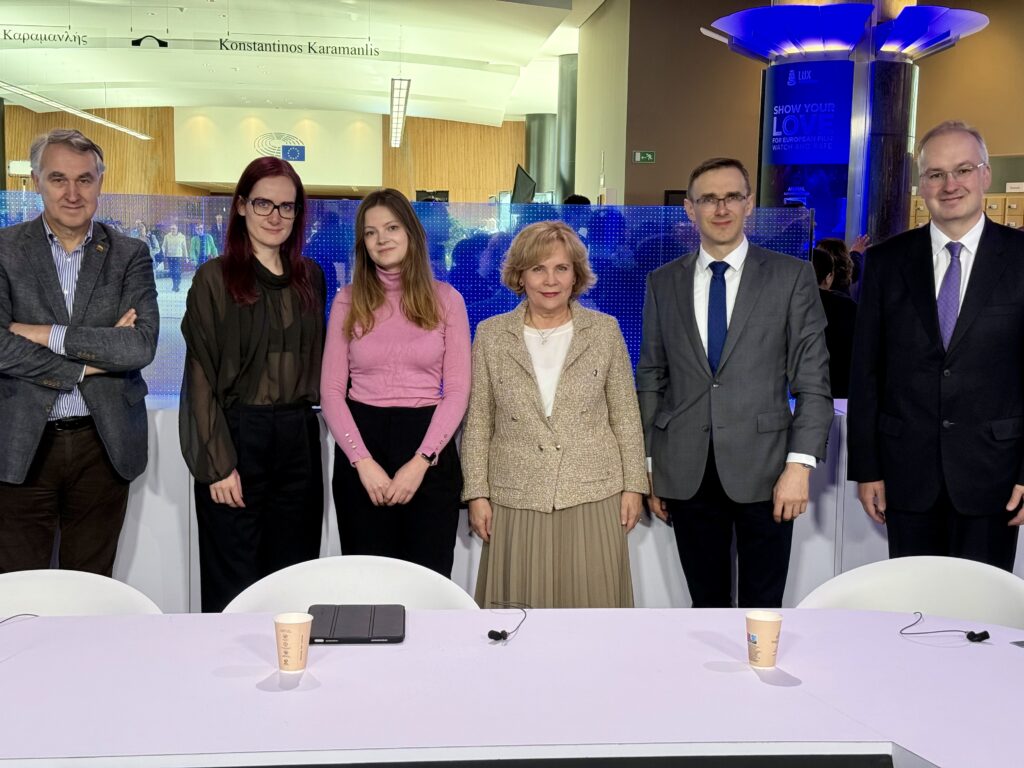
“I think that in the current circumstances, when we know that certain European governments – and I will name and shame Hungary and Slovakia – are currently more listening to what Putin’s propaganda is saying rather what is in the interest of Europe. (And they) still, unfortunately, have the veto in the Council,” the Czech MEP Markéta Gregorová said.
The delicate state of affairs, of course, is a direct result of two facts. First, defence spending is in the domain of individual member states; second, any EU-wide decisions by the Council of the European Union must be taken unanimously. The combination gives considerable power to member state governments with a contrarian streak. Mr Fedor, however, appeared hopeful that the gridlock could be broken soon.
“I don’t know how realistic that is but hopefully, (changes will come from) Germany. We can see really positive signs that they go actively into this area, we see the practical steps that has been announced. We will see how it develops, but we could see concrete steps forward (from here).”
Listen to the podcast on Spotify or on Apple Podcasts.
